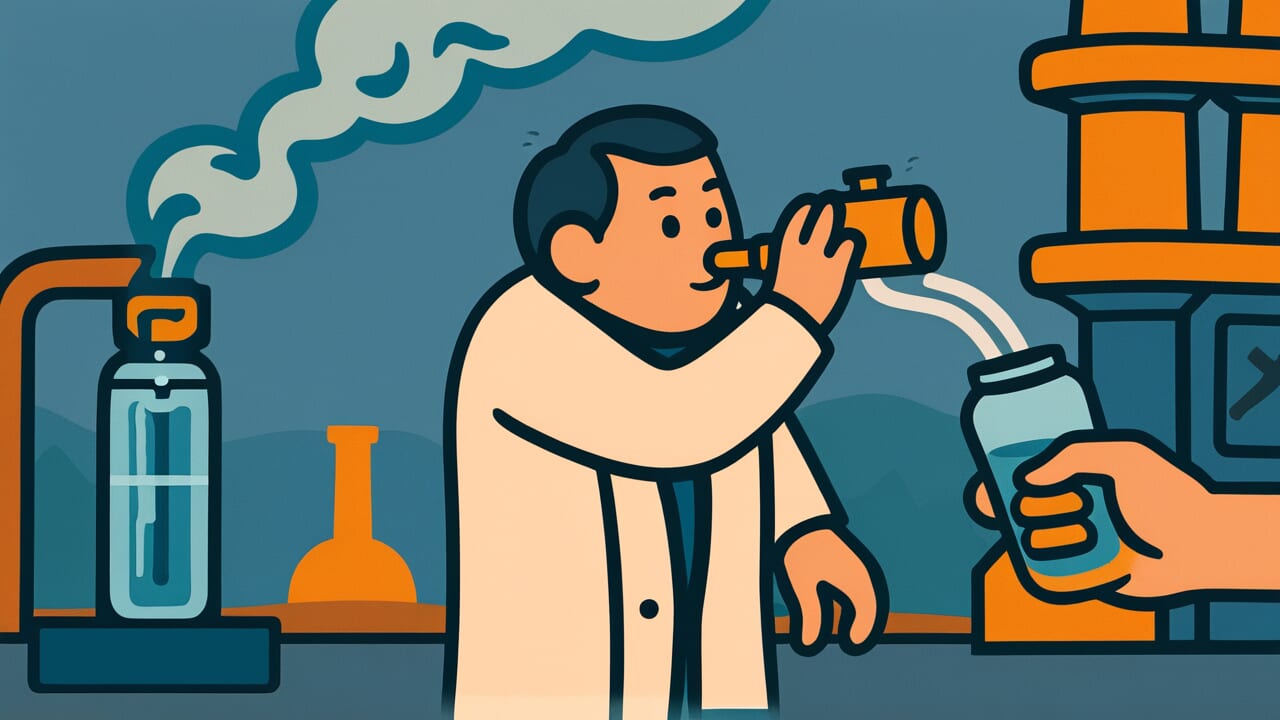How to Read “Doesn’t decrease by drinking, but decreases by smoking”
Nomu ni herade suu ni heru
Meaning of “Doesn’t decrease by drinking, but decreases by smoking”
“Doesn’t decrease by drinking, but decreases by smoking” means that even small amounts add up to create big losses over time.
This proverb describes situations where each expense seems tiny and unnoticeable. But when repeated, these small costs become surprisingly large without you realizing it.
The proverb uses a contrast between drinking and smoking. Drinking doesn’t seem to decrease anything, but smoking clearly does. This comparison teaches us about the danger of invisible consumption.
People use this saying to warn against daily wasteful spending. It also points out the danger of habitual expenses.
Modern examples include small purchases at convenience stores, daily canned coffee, and minor app charges. Each purchase feels insignificant, but the monthly or yearly total can be shocking.
This proverb sharply reveals this reality.
Origin and Etymology
No clear written records explain the origin of this proverb. However, the structure of the phrase offers interesting insights.
“Doesn’t decrease by drinking, but decreases by smoking” has a seemingly contradictory structure. Drinking doesn’t decrease things, but smoking does. This creates a striking contrast.
We should focus on what “drinking” and “smoking” meant in Edo period daily life. “Drinking” referred to consuming sake or tea. “Smoking” meant smoking tobacco.
Sake and tea visibly decreased when consumed. But tobacco disappeared as smoke into the air. The proverb taught that even expenses that seem invisible still definitely reduce your wealth.
For common people in the Edo period, daily spending on small luxuries was a serious household problem. One cup of sake or one smoke of tobacco didn’t cost much in the moment.
But these expenses accumulated daily. Before people knew it, they had spent large amounts. This proverb likely emerged as a warning born from this life wisdom.
Usage Examples
- My daily convenience store sweets follow “doesn’t decrease by drinking, but decreases by smoking” – I realized I spent 10,000 yen in a month
- Even small subscription charges follow “doesn’t decrease by drinking, but decreases by smoking,” so let’s review them all
Universal Wisdom
“Doesn’t decrease by drinking, but decreases by smoking” offers deep insight into human cognitive blind spots. We’re sensitive to large expenses but surprisingly insensitive to small ones. Why is this?
Our brains are designed to evaluate “loss in this moment.” Amounts like 100 or 200 yen get processed as “not painful to lose.” But when time enters the equation, everything changes completely.
A daily 200 yen expense exceeds 70,000 yen per year.
Our ancestors understood this weakness in human cognition. They recognized our tendency to flow with small immediate pleasures. They saw how we underestimate the power of accumulation.
Most importantly, they understood the psychological trap of feeling “what’s invisible doesn’t exist.”
This proverb has been passed down because it touches a timeless human truth. Edo period tobacco costs and modern subscription fees are essentially the same.
Small expenses accumulating gradually steal our wealth and freedom of choice without us noticing. Our ancestors expressed this universal truth in simple words.
When AI Hears This
Viewing this situation where wealth decreases through drinking or smoking from a physics perspective reveals surprising connections. The second law of thermodynamics states that energy transforms one-way from usable to unusable forms.
Hot coffee left alone always cools down. An uncleaned room always gets messy. Nothing returns to its original state.
This proverb has the same structure. Money as “usable energy” converts to an “unusable state” through both drinking and smoking equally.
The key point is that both actions produce the same result. This perfectly matches the thermodynamic principle that “entropy always increases regardless of the path taken.”
Just as gas molecules moving in any way inside a sealed container increase overall disorder, the same principle applies here.
More interesting is that this proverb doesn’t present “doing nothing” as an option. In actual thermodynamics, completely stopping a system is impossible.
Molecules constantly move and entropy keeps increasing. In poverty, simply living consumes energy and wealth naturally decreases. This is the same unavoidable flow as the universe moving toward heat death.
Lessons for Today
This proverb teaches modern people the importance of “making things visible.” Small expenses are hard to see, so we need to consciously visualize them.
Start by recording one month of small expenses. Daily coffee, app charges, convenience store purchases. When you total them, you might be surprised.
But this isn’t about blaming yourself. It’s a step toward reclaiming your freedom of choice.
The point isn’t to eliminate all small expenses. It’s to distinguish between what truly brings you value and what you continue only from habit.
Consciously chosen spending enriches your life, even if small. But unconscious spending only reduces your wealth.
This proverb doesn’t force a restrictive frugal lifestyle on you. Rather, it shows the first step toward positive change.
By becoming aware of how you spend money, you can concentrate resources on what truly matters. Small awareness brings great freedom.



Comments